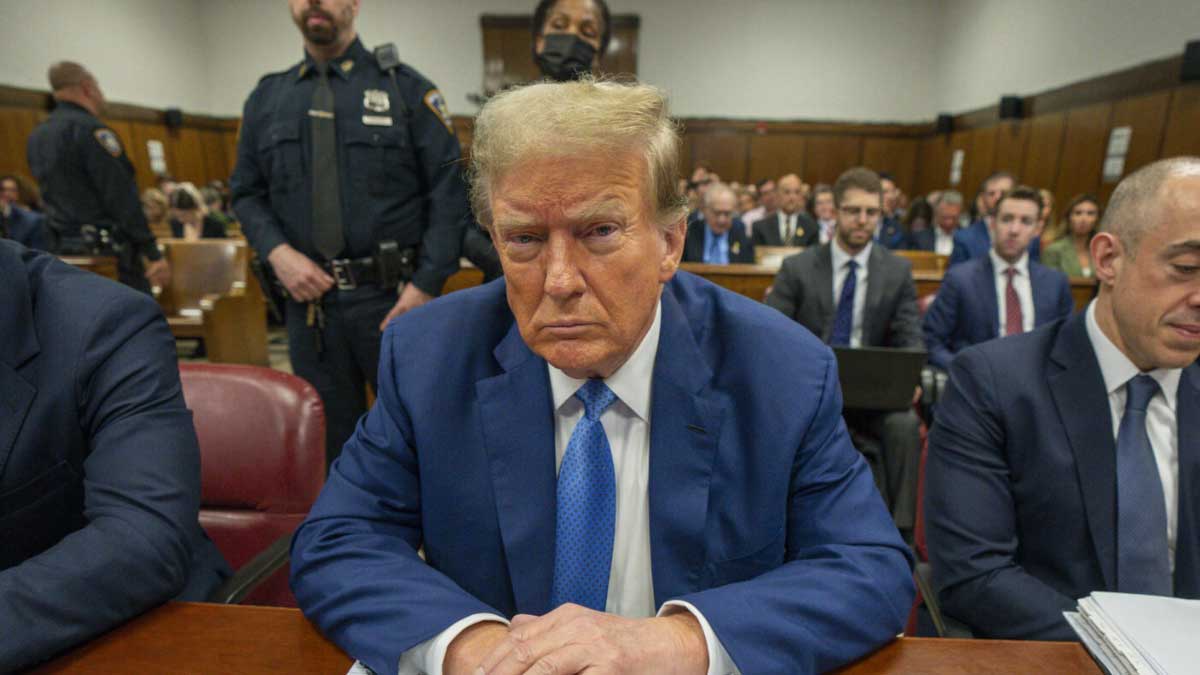- Home
- Billionaires
- Investing Newsletters
- 193CC 1000
- Article Layout 2
- Article Layout 3
- Article Layout 4
- Article Layout 5
- Article Layout 6
- Article Layout 7
- Article Layout 8
- Article Layout 9
- Article Layout 10
- Article Layout 11
- Article Layout 12
- Article Layout 13
- Article Layout 14
- Article Sidebar
- Post Format
- pages
- Archive Layouts
- Post Gallery
- Post Video Background
- Post Review
- Sponsored Post
- Leadership
- Business
- Money
- Small Business
- Innovation
- Shop
Recent Posts
Trump Seeks Federal Court Intervention in Hush Money Case

Former President Donald Trump has requested that a federal court take over his hush money criminal case, which is currently being tried in New York. This filing, made late on Thursday, aims to shift the proceedings from the state court to the Southern District of New York federal court, potentially delaying Trump’s sentencing scheduled for next month. Trump’s legal team argues that the state court’s handling of the case conflicts with the Supreme Court’s recent ruling on presidential immunity, which they claim has been misapplied in this instance.
In their filing, Trump’s attorneys contend that the prosecution’s procedures have been inconsistent with the Supreme Court’s July decision regarding presidential immunity. They argue that the Manhattan criminal case is inflicting direct and irreparable harm on Trump, who is a leading candidate in the 2024 Presidential election. The defense team also suggests that the case’s implications extend beyond Manhattan, affecting voters nationwide.
Trump’s lawyers further assert that moving the case to federal court is essential for ensuring an impartial trial, free from local biases. They have accused New York Judge Juan Merchan, who has been overseeing the case, of exhibiting partiality. This claim is based on Merchan’s daughter’s role as a Democratic political consultant and the judge’s gag order against Trump, which the defense argues is “unwarranted and unconstitutional.”
The timing of this latest filing is significant as it coincides with a pending decision from Judge Merchan regarding an earlier request by Trump’s legal team to postpone sentencing until after the 2024 presidential election. The Manhattan District Attorney’s office has not opposed this delay request. If both of Trump’s legal challenges fail, he is set to be sentenced on September 18, just seven weeks before the election, adding a layer of political and legal complexity to the situation.
The hush money case stems from an indictment handed down in May, where Trump was convicted on 34 felony counts for falsifying business records. This verdict followed nearly six weeks of testimonies and legal arguments. The charges are related to a $130,000 hush money payment made by Trump’s former attorney, Michael Cohen, to adult film actress Stormy Daniels before the 2016 elections. The payment was intended to cover up an alleged affair with Trump, which he has denied. Prosecutors argue that Trump reimbursed Cohen through a series of payments in 2017, which were falsely labeled as payments for legal services.
Each of the felony counts carries a maximum penalty of $5,000 and/or four years in prison, totaling a potential $170,000 in fines and a 136-year prison sentence. However, as a first-time offender, Trump is unlikely to face any actual prison time. The hush money case is just one of four criminal cases involving Trump currently in trial.
The broader implications of this legal maneuver are significant. By requesting a federal court intervention, Trump’s legal team seeks not only to delay the proceedings but also to shift the case to a forum they believe may offer a more favorable outcome. The assertion of local bias and constitutional violations adds a layer of complexity to an already contentious legal battle. As Trump continues to navigate these challenges, the outcome of his requests could have a substantial impact on his legal future and his presidential campaign.
Recent Posts
Categories
- 193cc Digital Assets2
- 5G1
- Aerospace & Defense44
- AI32
- Arts3
- Banking & Insurance11
- Big Data3
- Billionaires224
- Boats & Planes1
- Business304
- Careers13
- Cars & Bikes66
- CEO Network1
- CFO Network17
- CHRO Network1
- CIO Network1
- Cloud10
- CMO Network18
- Commercial Real Estate7
- Consultant1
- Consumer Tech155
- CxO1
- Cybersecurity51
- Dining1
- Diversity, Equity & Inclusion4
- Education7
- Energy8
- Enterprise Tech29
- Events11
- Fintech1
- Food & Drink2
- Franchises1
- Freelance1
- Future Of Work2
- Games135
- GIG1
- Healthcare74
- Hollywood & Entertainment154
- Houses1
- Innovation37
- Investing2
- Investing Newsletters4
- Leadership65
- Lifestyle10
- Manufacturing1
- Markets20
- Media183
- Mobile phone1
- Money13
- Personal Finance2
- Policy542
- Real Estate1
- Research6
- Retail1
- Retirement1
- Small Business1
- SportsMoney22
- Style & Beauty1
- Success Income1
- Taxes2
- Travel10
- Uncategorized6
- Vices1
- Watches & Jewelry2
- world's billionaires194
Related Articles
Carr’s FCC Nomination and Musk’s Potential Gains
President-elect Donald Trump has nominated Brendan Carr to lead the Federal Communications...
By 193cc Agency CouncilNovember 19, 2024Musk Joins Trump’s Call with Ukraine’s Zelensky
Billionaire Elon Musk played an unexpected role in a call between President-elect...
By 193cc Agency CouncilNovember 9, 2024Trump’s Day 1 Priorities: Immigration, Energy, Ukraine, Iran
Former President Donald Trump’s advisers revealed that his top priorities for the...
By 193cc Agency CouncilNovember 7, 2024Elon Musk’s Potential Role and Influence in a Trump Administration
With Donald Trump’s successful bid for re-election, the question on many minds...
By 193cc Agency CouncilNovember 7, 2024















Leave a comment